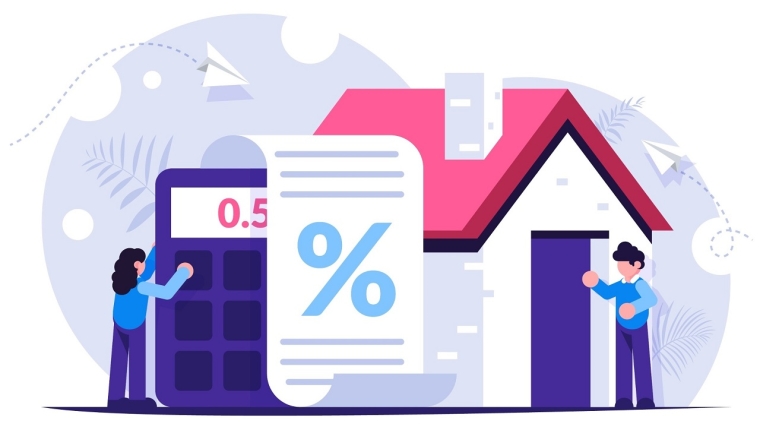
New mortgages with fixed interest rates have continued to rise and have hit a new record high as a share of the mortgage monies advanced, according to Reserve Bank figures.
According to the latest monthly figures in the Reserve Bank's recently introduced data set on new lending fully secured by residential mortgages, September saw floating mortgages continue to sink in popularity.
In its summary of the data highlights, RBNZ said The share of total new residential lending on fixed interest rate terms continued to rise to 82.8%, up from 81.9% in August (Figure 2). This is the highest share on record.
This particular data series, only introduced earlier this year, covers new lending or facilities loaded in the reporting month. This is different to other RBNZ series on mortgage lending, which report new mortgages on the basis of when they have been committed to, rather than when they've actually been taken up.
Since the beginning of this series it has been quite clear that those taking out new mortgages are closely following the 'cheapest' deal they can get in terms of rates.
One and two year mortgage terms are always popular, but more recently there's been a surge of interest, from low levels, in six-month terms.
The RBNZ said new owner occupier lending rose to $4.44 billion in September, up 2.1% from $4.347 billion in August.
One-year fixed terms continue to be the most popular term of owner-occupier lending, accounting for 27.1% of all new lending. But this was down slightly from 27.8% in August.
Two-year terms share rose to 23.5% (from 21.8%), while 18-month terms. The share of lending on 18-month terms rose to 16.4% (from 15.2%).
Six-month term mortgages made up just 5.3% of the owner-occupier new borrowing. However, the numerical total, at $236 million, is the largest amount put on this term since the data series began in April 2021. Does this suggest more buyers waiting to see if there will be some easing in rates in the first half of next year?
The RBNZ said new residential investor mortgage lending was flat at $1.26 billion in September. 1-year fixed terms were the most popular, making up 31.6% of new lending, up slightly from 31.5% in August.
5 Comments
Shorter term so higher risk. May the gods be with you, whoever you are.
With 2024 looming I am frozen into inaction, paying my rent and wondering how long I'll be able to. Anyone borrowing at the moment is so much more courageous (or wealthy) than me I have no right to judge them. Best of luck.
Stay renting and you are making a bet that inflation will drop to zero...
What nonsense!
If you believe your statement (advice?) is not nonsense then you'll need to explain how you came to this conclusion.
Explain away ...
re ... "Shorter term so higher risk."
Not really.
Just about all independent economists, and honest bank economists, are pretty sure that mortgage rates are about, or around, their peak for this inflationary cycle. I.e. the chances of another significant rate increase, say another 1%, are remote.
Thus a 'short fix' of 6 months carries little extra downside risk but there may be some upside if talk of rates coming down flows into competition between banks and you can negotiate a better rate at the end of 6 months.
Six months from September is March, 2024. I expect we'll see NZ Inc. struggling quite a bit by March, 2024 and there will be calls for the RBNZ to lower the OCR. A forward looking RBNZ would lower rates earlier as there is always 'economic friction' and delayed effects that will keep inflation trending down. Alas, the banks and many others will be saying 'stay the course' and the RBNZ may choose to hold for a bit longer - another 3 months?. In which case, fixes can be made for another 6 months, or it's really bad and bigger cuts are imminent, going to a variable rate may make sense.
FYI: I have recently re-financed a mortgage (moving from one bank to another to get treated better) and I um'ed and ah'ed between 6 months and 1-year year. I went for 1 year as I have a very bad habit of being 6 months early with my readings of the economic tealeaves. The other reason is that negotiating with banks - once they have you locked in - is a pain in the butt as they hold all the power and they love to profit from it, meaning you're forced into re-financing to escape their grasping mitts. Re-financing isn't a big deal anymore and the 'cashback' offers cover the costs and then some - but it is time consuming and irritating.
Your assessment sounds about right.
My problem is that I've not had much luck in life and it would be typical for me to borrow and then international rates to rise as lenders get increasingly panicky, and NZ would have to follow quickly (I don't see the RBNZ having much power). I respect those with more courage than me - just can't muster it after past experience.

We welcome your comments below. If you are not already registered, please register to comment
Remember we welcome robust, respectful and insightful debate. We don't welcome abusive or defamatory comments and will de-register those repeatedly making such comments. Our current comment policy is here.